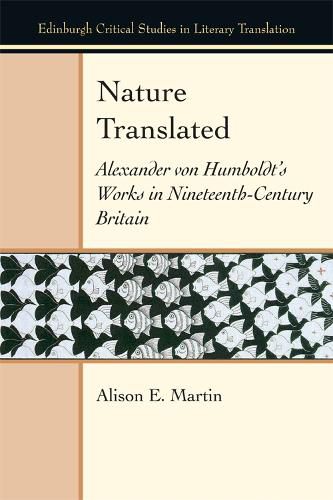Readings Newsletter
Become a Readings Member to make your shopping experience even easier.
Sign in or sign up for free!
You’re not far away from qualifying for FREE standard shipping within Australia
You’ve qualified for FREE standard shipping within Australia
The cart is loading…






The first extensive analysis of the translation, publication and critical reception of Alexander von Humboldt’s writings in nineteenth-century Britain
Alexander von Humboldt was one of the most important scientists of the nineteenth century. Captivating his readers with his vibrant, lyrical prose, he transformed understandings of the earth and space by rethinking nature as the interconnection of global forces. This book argues that style was key to the success of these translations and shows how Humboldt’s British translators, now largely forgotten figures, were pivotal in moulding his prose and his public persona as they reconfigured his works for readers in Britain and beyond.
Key Features
Prompts a rethinking of the role of translation in mediating scientific knowledge Reconsiders how translators shape a scientist’s international reputation Draws on extensive archival material in neglected publishers’ archives to shed new light on how authors, their translators and their publishers collaborate
$9.00 standard shipping within Australia
FREE standard shipping within Australia for orders over $100.00
Express & International shipping calculated at checkout
The first extensive analysis of the translation, publication and critical reception of Alexander von Humboldt’s writings in nineteenth-century Britain
Alexander von Humboldt was one of the most important scientists of the nineteenth century. Captivating his readers with his vibrant, lyrical prose, he transformed understandings of the earth and space by rethinking nature as the interconnection of global forces. This book argues that style was key to the success of these translations and shows how Humboldt’s British translators, now largely forgotten figures, were pivotal in moulding his prose and his public persona as they reconfigured his works for readers in Britain and beyond.
Key Features
Prompts a rethinking of the role of translation in mediating scientific knowledge Reconsiders how translators shape a scientist’s international reputation Draws on extensive archival material in neglected publishers’ archives to shed new light on how authors, their translators and their publishers collaborate